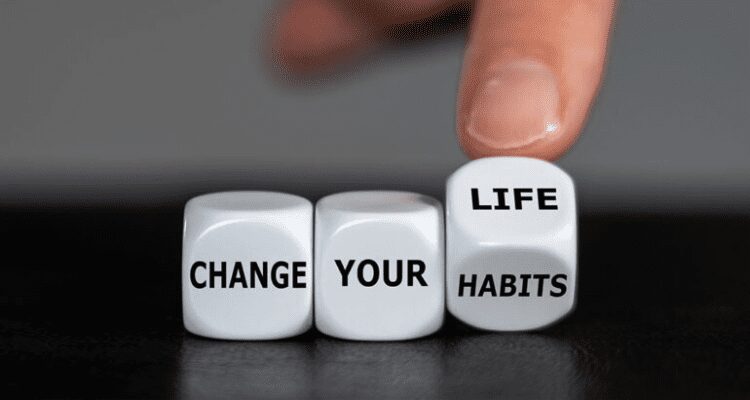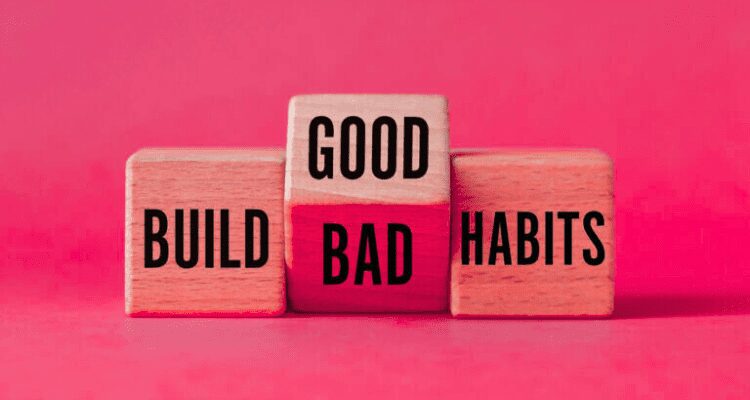In a world that constantly evolves, the pursuit of personal improvement is not a luxury—it’s a necessity. Whether you’re aiming for better health, a sharper mind, or more meaningful relationships, the key to achieving lasting change lies in building the right habits. And not just any habits, but essential habits that compound over time to deliver powerful transformations.
The journey toward personal improvement isn’t about overnight success or instant gratification. It’s about adopting a long-term mindset and practicing consistent, small behaviors that lead to exponential growth. In this article, we’ll dive deep into seven essential habits that can drastically enhance your quality of life—physically, mentally, emotionally, and spiritually.
Start Your Day With Intention
One of the most essential habits for personal improvement is starting your day with purpose. Too many people begin their day reacting to the world—grabbing their phones, checking emails, or scrolling through social media. This sets a passive tone for the rest of the day. Instead, craft a morning routine that aligns with your goals and values.
This could include: Meditation or mindfulness to center yourself. Gratitude journaling to cultivate positivity. Reviewing your goals to maintain clarity and motivation. Physical movement to energize your body.
When you take control of your morning, you signal to your brain that you are in charge of your day. It reinforces discipline, focus, and clarity—cornerstones of personal growth. Try the “5-5-5 Method”: 5 minutes meditation, 5 minutes journaling, 5 minutes stretching.
Set Clear, Measurable Goals
Without clear goals, personal improvement becomes vague and unfocused. It’s like trying to navigate a new city without a map. One of the essential habits of high achievers is goal setting—but not just any goals.
Your goals must be SMART: Specific, Measurable, Achievable, Relevant, and Time-bound. Break your long-term goals into smaller, actionable steps. For example, if your goal is to “get fit,” define it clearly: “Lose 10 pounds in 3 months by exercising 4 times a week and eating a calorie deficit of 500 calories per day.”
Concrete goals give you a target to aim for and a benchmark to measure your progress. They help channel your energy, making you more efficient and less prone to procrastination. Use a digital planner like Notion or Trello to break goals into daily actions.
Prioritize Continuous Learning
One of the most underrated yet essential habits for personal improvement is becoming a lifelong learner. Whether through books, podcasts, online courses, or conversations, absorbing new knowledge fuels growth. The more you know, the more perspectives you gain and the more tools you acquire to tackle life’s challenges.
Here’s how to integrate learning into your daily life: Read 20 minutes daily (that’s about 12 books a year). Listen to podcasts during commutes or workouts. Watch educational videos instead of mindless entertainment. Join communities that challenge your thinking (e.g., Reddit, Quora, mastermind groups).
Knowledge compounds over time. Each new skill or concept adds another layer to your capabilities, boosting your confidence and performance in all areas of life. Curate a reading list of books that align with your goals (e.g., self-discipline, emotional intelligence, productivity).
Master Time Management
Time is your most precious resource. How you spend it determines your trajectory. One of the essential habits for personal improvement is mastering the art of time management. Without it, even the best intentions fall apart. Start by tracking your time for one week. You’ll likely discover areas of waste—mindless scrolling, excessive multitasking, or distractions.
Use this data to: Batch similar tasks to reduce context-switching. Set time blocks for deep work. Use the Pomodoro Technique (25 minutes work/5 minutes rest). Eliminate or delegate low-value tasks.
When you control your time, you control your outcomes. You gain the bandwidth to focus on high-leverage activities that drive real improvement—like learning, planning, or creating. “Deep Woork” by Cal Newport—a game-changer for productivity.
Develop Emotional Intelligence
No list of essential habits for personal improvement is complete without emphasizing emotional intelligence (EQ). While IQ may get you in the door, EQ keeps you in the room. It’s your ability to understand, manage, and express emotions—both your own and others’.
High EQ enables you to: Respond rather than react. Manage stress and anxiety. Navigate conflict with empathy. Build stronger relationships. Practicing emotional intelligence involves: Self-reflection: Journal about your emotions daily. Active listening: Focus on truly understanding others. Mindfulness: Observe your thoughts without judgment. Feedback seeking: Ask for input to improve your communication.
Emotional resilience is foundational to personal improvement. It determines how well you bounce back from setbacks, interact with others, and make decisions under pressure. Try apps like Moodnotes or Daylio to track and reflect on your emotional states.
Cultivate Physical Wellness
Your body is your vehicle for success. Neglect it, and your mind and productivity suffer. One of the most foundational essential habits for personal improvement is taking care of your physical health. This includes: Regular exercise (at least 30 minutes, 4–5 days a week). Quality sleep (7–9 hours per night). Hydration (aim for 2–3 liters of water daily). Balanced nutrition (limit sugar, eat whole foods).
You don’t need to be a fitness fanatic. Even small changes—like daily walks, replacing soda with water, or sleeping earlier—can yield big results over time. Your energy levels, focus, mood, and immune system all depend on your physical state. A healthy body enhances your capacity to pursue every other area of personal improvement. Turn workouts into a non-negotiable calendar event—just like meetings.
Practice Gratitude & Mindfulness

In our fast-paced lives, it’s easy to become consumed by what’s next—what we lack, what we must achieve, what isn’t going right. Practicing gratitude and mindfulness shifts your attention to the present, making it one of the most transformative essential habits for personal improvement.
Mindfulness helps you to: Stay grounded in the present moment. Reduce anxiety and stress. Improve concentration and emotional regulation. Gratitude, on the other hand: Boosts happiness and optimism. Strengthens relationships. Fosters contentment and reduces materialism. So, how to practice these techniques? First, start or end your day with 3 things you’re grateful for; Meditate for 5–10 minutes using apps like Headspace or Calm; Practice mindful eating, walking, or breathing throughout the day.
Gratitude and mindfulness reinforce a positive mindset and enhance self-awareness. They allow you to appreciate the journey of self-improvement instead of just chasing the destination. A 2029 study published in Psychological Bulletin found that gratitude interventions signifiicantly improve mental well-being.
Personal improvement is a lifelong journey. The most successful people aren’t necessarily the smartest or the luckiest—they’re the most consistent. They understand that change isn’t about giant leaps, but small, deliberate steps repeated daily.
Start by focusing on one or two habits and gradually layer in more as you go. Remember, perfection isn’t the goal—progress is. Each time you practice these essential habits, you build momentum toward becoming a more empowered, focused, and fulfilled version of yourself. And don’t forget to explore my new Instagram collection of beautifully crafted motivational quotes to inspire your day HERE!
- Related Content: How to Stay Calm in Every Situation


